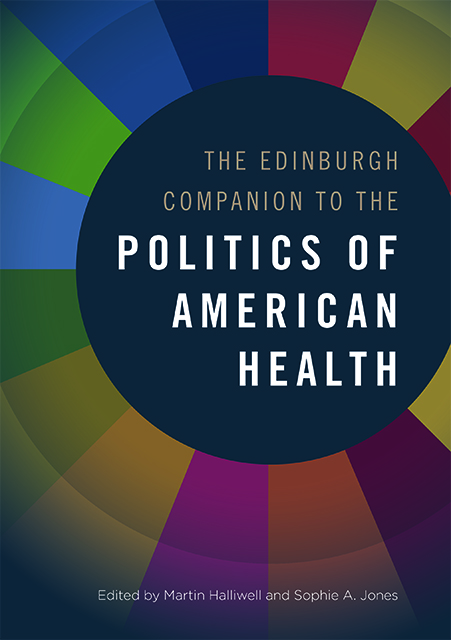Book contents
- Frontmatter
- List of Contents
- Notes on Contributors
- Introduction: The Political Landscapes of American Health, 1945–2020
- I Geography, Community and American Health
- II Critical Health Conditions: Debates and Histories
- III The Politics of Children's Health
- IV The Institutional Matrix of Health Care
- V The White House, Congress and Health Reform
- VI Justice, Ethics and American Health
- VII Public Health and Global Health
- General Bibliography
- Index
32 - Environmental Health beyond the State: Thinking through the 1970s
Published online by Cambridge University Press: 12 August 2023
- Frontmatter
- List of Contents
- Notes on Contributors
- Introduction: The Political Landscapes of American Health, 1945–2020
- I Geography, Community and American Health
- II Critical Health Conditions: Debates and Histories
- III The Politics of Children's Health
- IV The Institutional Matrix of Health Care
- V The White House, Congress and Health Reform
- VI Justice, Ethics and American Health
- VII Public Health and Global Health
- General Bibliography
- Index
Summary
In October 1976, the Administrator of the Environmental Protection Agency, Russell Train, asserted that the recently passed Toxic Substances Control Act was ‘one of the most important pieces of “preventive medicine” legislation’ ever passed by Congress, as its ‘basic aim is to give public health far more of the weight that it deserves in the decisions by which chemicals are commercially made and marketed, by which they enter and spread throughout the human environment’. Train framed health as a measure of the extent to which humans could exist within a particular environment free of disease. In his formulation, the environment deserved protection not in its own right, but because without it humans would die. Train reflects a relatively familiar perspective on environmental health protection, in which health is a property of human bodies, clinical biomedicine is its proper discipline of study, and the government exercises responsibility for it through legislation and regulation.
Train's conceptualization of the environment as the backdrop for the central drama of human existence is but one way in which health has been used to think about the relationship between humans and the non-human world. A far different understanding of environmental health is visible in an anatomical description of the earth made in 1978 by Northern Californian bioregional activist Peter Berg:
There are countries that can't be found in a World Atlas … They are the natural countries founded on specific soils and land forms, exposed to particular climate and weather, and populated by native plants and animals which have endured since the last Ice Age. Each is a separate living part of the unified planetary biosphere; tissues and organs in the current manifestation of Earth's anatomy. They exist as a live geography more distinct than the nations and states whose borders shift arbitrarily to include or divide them.
Berg saw the constraints of framing environmental health as a metric of human well-being and survival. He believed that health was a dynamic state to be protected through the restoration of holistic interactions between living creatures. His perspective was grounded in an ecological anarchism that valued deep historical knowledge of specific places.
These contemporaneous invocations of environmental health diverge in their interpretations of human behaviour, ecological interconnectedness and political legitimacy. Federal scientific and regulatory action reinforced the first, anthropocentric, perspective on environmental health.
- Type
- Chapter
- Information
- The Edinburgh Companion to the Politics of American Health , pp. 553 - 568Publisher: Edinburgh University PressPrint publication year: 2022

